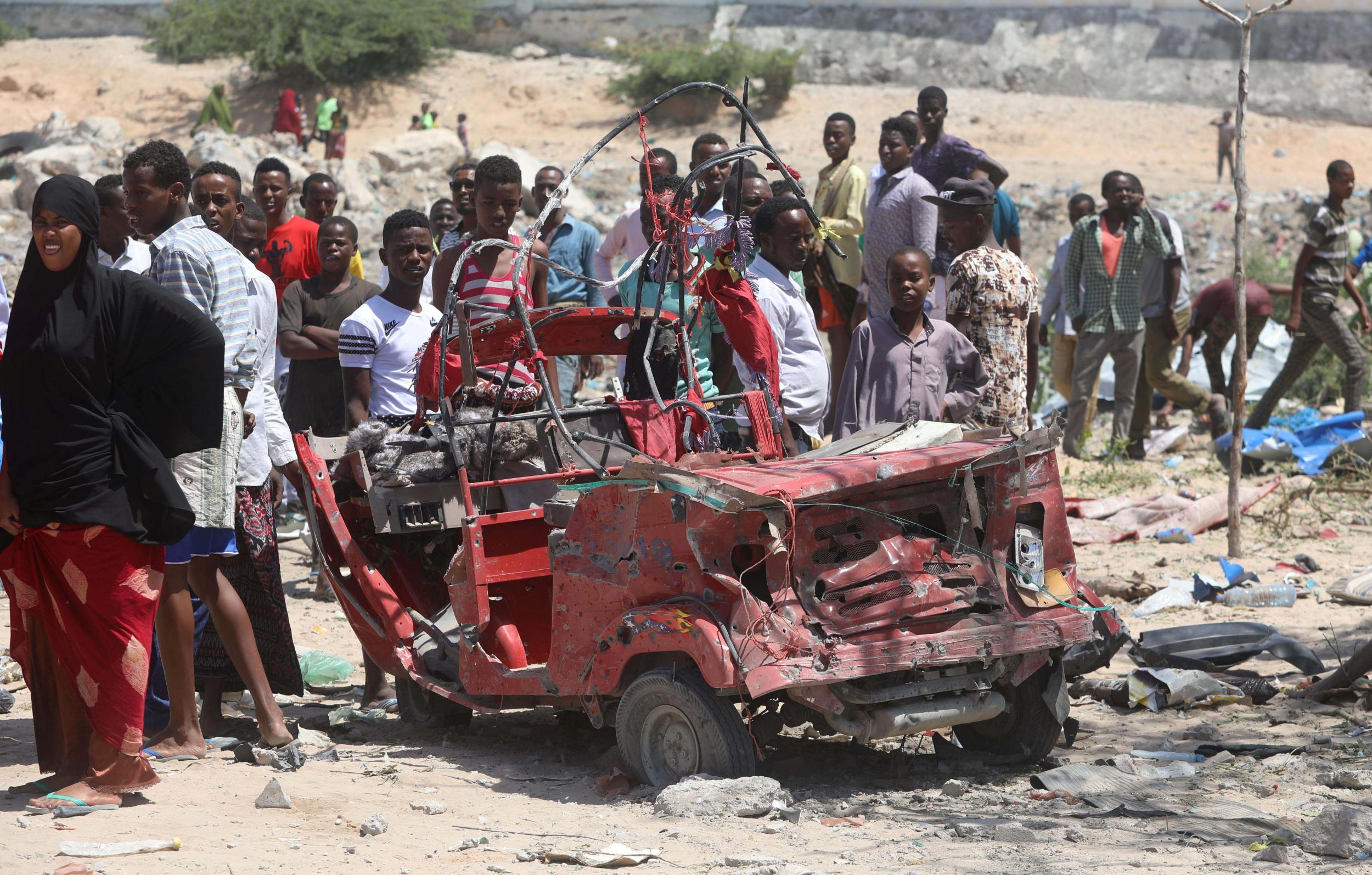Suicide bomber kills six people in Somalia capital, Mogadishu
Two children among dead after attacker blows up explosives-packed rickshaw

A suicide bomber has killed at least six people, including two children, after blowing up an explosives-packed rickshaw in Somalia’s capital city, Mogadishu.
Houses, mosques and a school are reported to have collapsed during the attack, which the Islamist militant group al-Shabaab claimed it carried out.
Fourteen people were left in intensive care by the blast, although officials warned both the numbers of dead and injured may yet rise.
Among the victims were three soldiers who had stopped the vehicle from entering a government compound at a checkpoint in the Howlwadag district.
"I saw bodies strewn on the ground after the explosion before the ambulances and the paramedics reached the scene, and the whole scene was very ugly," one witness Halima Mohamed said.
Abdiasis Abu Musab, a military operations spokesman with al-Shabaab, said: “We are behind the suicide attack. We targeted the district office in which there was a meeting.”
He claimed 10 people had died.
Somalia has faced instability, lawlessness and violence since 1991 when the military government was overthrown but not replaced. It lead to a decades-long civil war between rival warlords – which has not yet been entirely resolved.
A United Nations-backed unity government was formed in 2012 with support from the African Union.
But, while al-Shabaab was driven out of many urban areas, it retains control of swathes of territory in rural regions.
Join our commenting forum
Join thought-provoking conversations, follow other Independent readers and see their replies
Comments